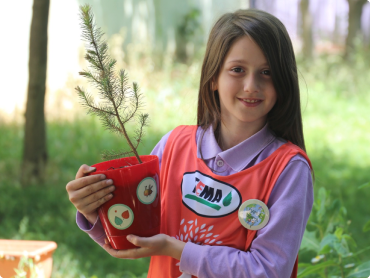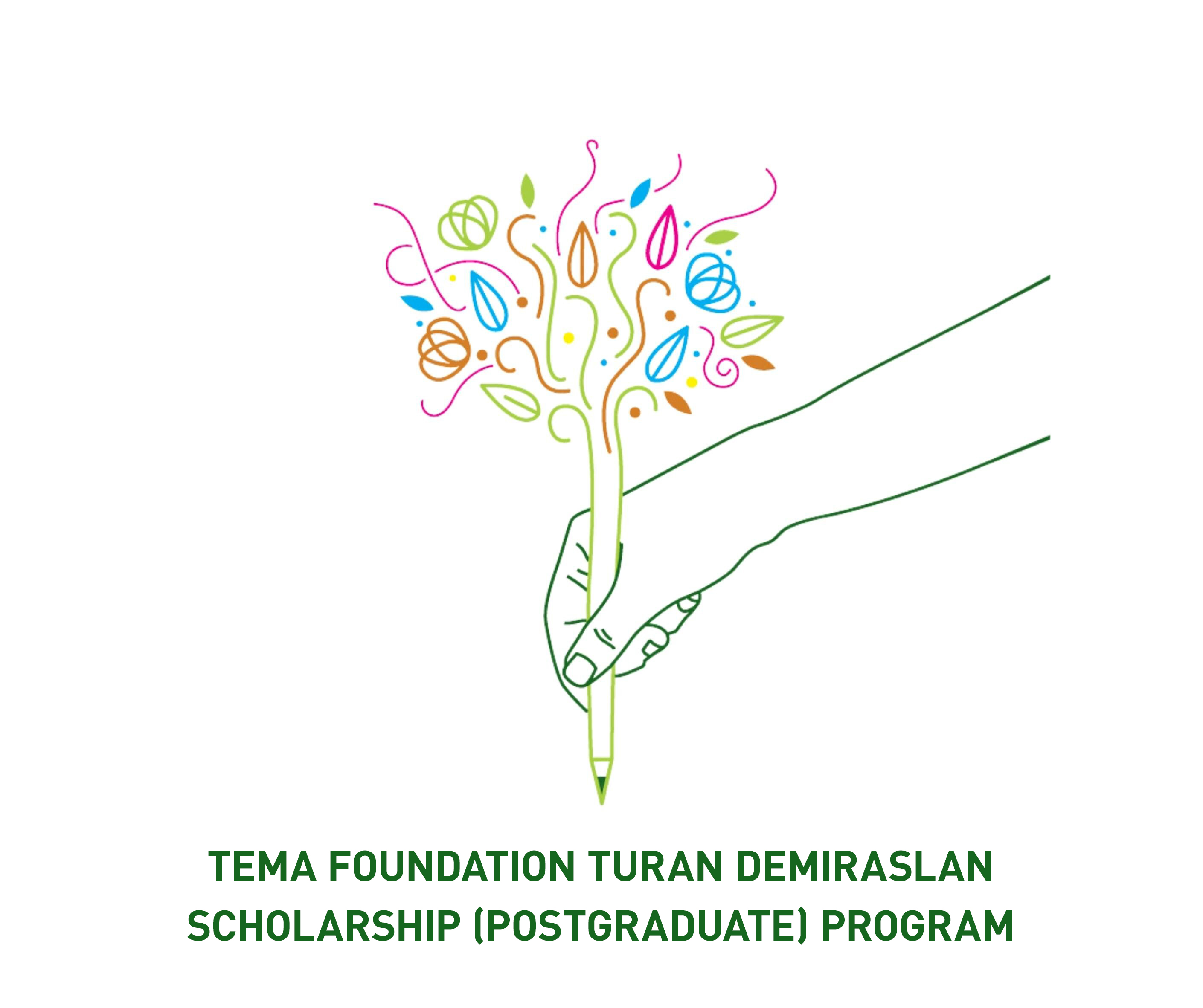About the Scholarship Program
With the educational donation made by Mr. Turan Demiraslan, TEMA Foundation provides educational support to graduate and doctoral students who conduct research in line with the objectives of TEMA Foundation and who need financial support to carry out their research / project activities. Within the scope of the scholarship program, in addition to supporting students, it is also aimed to encourage scientific studies in areas related to nature conservation.
Scholarship applications for the 2024-2025 academic year have been completed.
Contact: burs@tema.org.tr
APPLICATION TERMS
Master's and PhD students applying for an education scholarship must meet the following conditions:
- Be a citizen of the Republic of Turkey.
- Have no criminal or disciplinary offenses.
- Continuing their master's or doctoral studies in one of the departments of biology, geography, education, food, law, primarily forestry, agriculture and environment departments of universities, in the research subjects* specified in a program that can contribute to achieving the goals of TEMA Foundation.
- To be enrolled in the thesis stage of the master's or doctoral program, and to be able to submit the written approval of the institute during the application.
- To ensure that the university provides the necessary equipment, infrastructure and materials for the research in question and that the consultant has sufficient expertise.
- To present a joint guarantor for the scholarship payments under the following conditions and to sign the TEMA Foundation Turan Demiraslan Scholarship (Graduate) Programme Protocol together with the joint guarantor. (The conditions for a joint guarantor are specified in the downloadable document below).
- To submit to TEMA Foundation the document showing that the research topic has been approved by the university/institute (with the date of approval), the interim report at the end of the first 4 months (with the signature of the academic advisor) and the final report within 1 month after the completion of the research (no later than 1 month after the last scholarship payment) in Turkish language and in accordance with the format to be submitted by TEMA Foundation.
- Not to exceed the age of 30 for a master's degree and 35 for a doctorate.
- There is no other person from the same family who has received a scholarship from the Turan Demiraslan Scholarship Program.
- To be in need of financial support in order to meet their educational and research needs.
- Accept that the intellectual financial and, if any, industrial financial (patent, utility model and industrial design) property rights of the research will belong to TEMA Foundation.
- To be a TEMA Foundation volunteer and participate in its activities.
- To agree to participate in the scholarship meetings to be held twice a year to be determined by TEMA Foundation.
RESEARCH TOPICS
The research areas determined in line with TEMA Foundation's working areas are as follows. If there is a subject to be applied outside these areas, it can be added with the decision of the board of directors.
In the Field of Forest and Rural Development
- Research on soil erosion, land degradation, combating desertification, sustainable agricultural practices, soil ecology, economic and social impacts of sustainable land and soil management
- Economics and sociology of rural development
- Fighting forest fires and fire ecology
- Agroecological agriculture, biological control studies
- Precision agriculture practices, cultivation and irrigation technologies
- Prevention of land degradation, land reclamation and development of sustainable management plans
- Ecology, reclamation and management of rangeland
- Food and sustainable raw material supply
- Phyto-sociological investigation of natural old-growth forest ecosystems in Turkey
- Biodiversity studies in natural forests, protected area management
- Sustainable soil and land management: Planning, modeling and policy
- Management of watersheds, effects of land uses on aquatic ecosystems
- Land and land management, forest, pasture and water law
- Sociological research in rural areas
In the Field of Environmental Policies
- Energy democracy
- Superior public interest analysis and superior ecosystem benefit analysis in social decision-making mechanisms
- Environmental impacts of renewable energy
- Climate change and food security
- Agricultural systems and environmental relations
- Analysis and evaluation with a focus on food security and climate change
- Determination of environmental impacts of existing/operating industrial facilities
- Impacts of the circular economy in the fight against climate change
- Implications of sustainable development goals for climate policy
In the Field of Environment and Nature Education
- Developing and examining educational programs and materials in the fields of ecology-based nature education, sustainable living, ecological literacy and school programs
- Investigating the use of educational technology tools and different educational methods and techniques in nature education and measuring their effects
- Developing a scale for environmental education impact assessment


